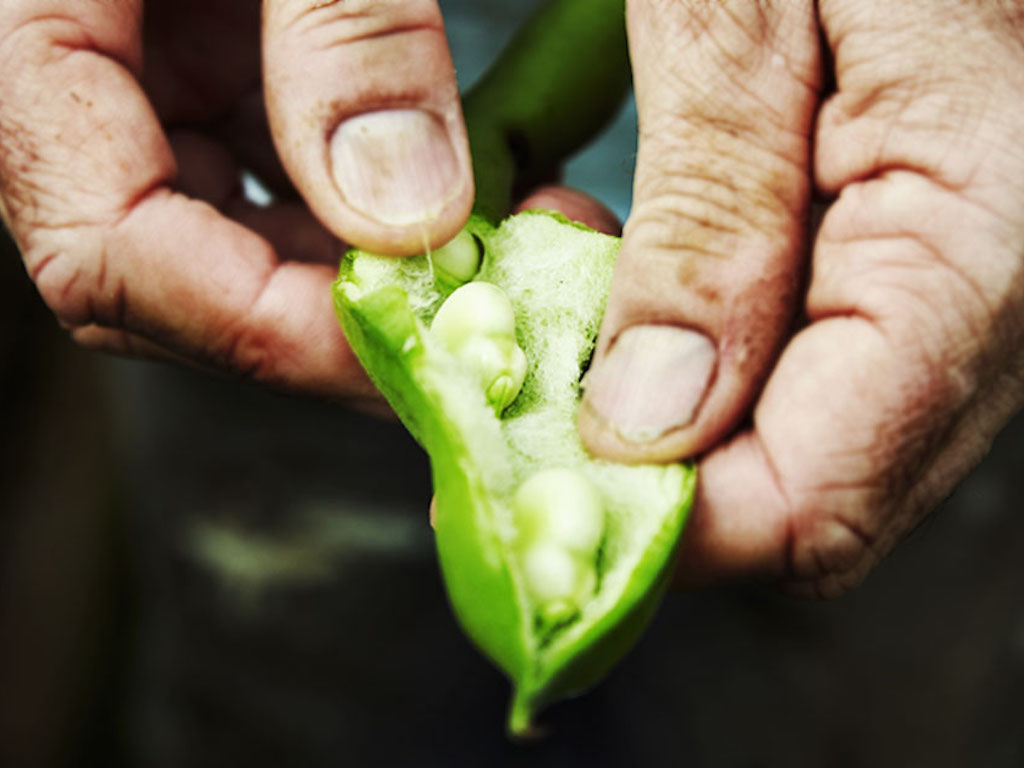How This ‘Gamechanger’ Fava Bean Protein Fights Deforestation and Agricultural Waste
3 Mins Read
Dutch plant-based ingredients supplier Meelunie is gearing up to open its new processing facility to begin manufacturing fava bean protein, a move the company describes as a “gamechanger in the protein transition”. Slated to open in late 2022, the new facility will use a “breakthrough” technology developed by University of Copenhagen researchers that enables the production of a neutral-tasting, climate-friendly and cost-effective fava bean protein product with applications in nutrition and alternative proteins.
While soy, peas, wheat and rice typically dominate the ingredients list in plant-based alternative proteins on the market, Meelunie wants to change it up by adding fava beans to the mix. Opening up a brand new facility in October 2022, the Dutch plant-based ingredients supplier will be churning out fava bean protein isolate and other fava-derived ingredients made using a “breakthrough process methodology” developed after 17 years of research at the University of Copenhagen (UCPH).
The company says that diversifying plant proteins with fava beans (also known as faba beans and broad beans) is going to play a “pivotal role” in the protein transition, because it can address inefficiencies in agriculture, alleviate deforestation and rising climate-related challenges to the food supply chain.
‘This facility can be a genuine gamechanger’
“The limited availability and suitability of local alternatives to soya has been a handbrake on the protein transition for some years,” said Marco Heering, CEO of Meelunie. “Because the fava bean thrives in non-tropical climates, such as Europe and North America, this facility can be a genuine gamechanger.”
The processing tech that the company will use is also more efficient than existing manufacturing techniques, as well as being able to remove the bitterness of the fava bean, making it applicable to a wide variety of products, from meat substitutes to protein shakes and other performance nutrition items.
“The UCPH breakthrough is two-fold,” explains Gijs van Elst, the project’s leader at Meelunie.
“First, they’ve managed to remove the fava bean’s bitter taste, making it perfect for use in human food applications ranging from dairy and meat alternatives to sports nutrition and gluten-free products. And UCPH’s process is also more efficient, so we’re able to valorise the entire bean.”
Circular fava bean protein production
Meelunie’s new factory will open up “near land ideally suited to cultivating fava beans” and will be operating in a circular model, according to the project lead.
“Water used in the production process will be filtered and reused to create a circular system,” says Van Elst. “We’ll capture heat generated in production for reuse in the local municipality’s heating system.”
As the plant-based industry matures, fava beans are making their way into more alternative meat and dairy formulations. Swedish food tech Stockeld Dreamery are making their vegan feta cheese out of fava beans and pea protein, for instance, while Nestlé subsidiary Sweet Earth Foods has also incorporated fava beans and hemp into their new hot dogs and burger patties and French startup Update Foods makes dairy-free milk from fava beans and algae.
Lead image courtesy of Meelunie.




